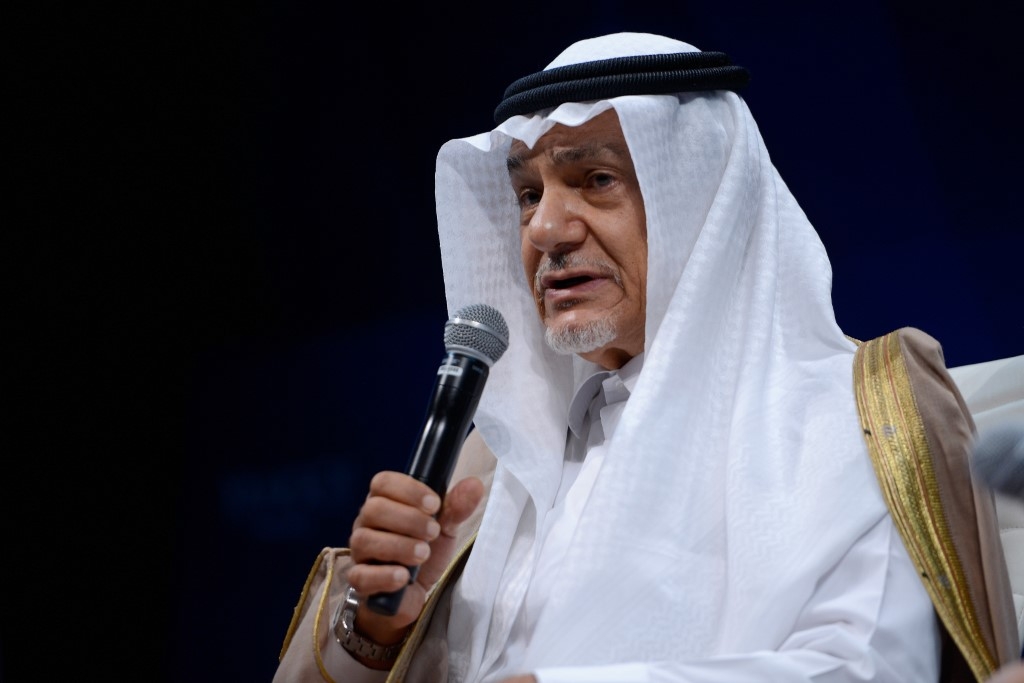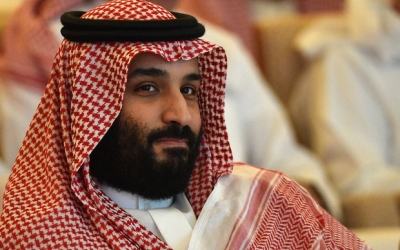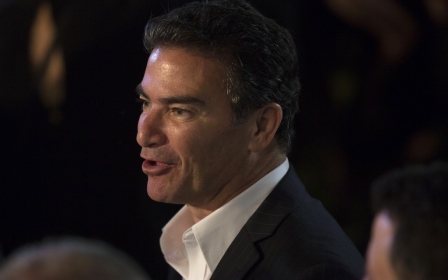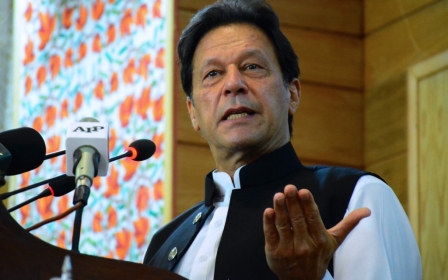Saudi Arabia's Turki bin Faisal dubs Israel 'Western colonising power' at Bahrain summit

Saudi Prince Turki bin Faisal strongly criticised Israel and dubbed it a "Western colonising" power on Sunday during a security summit remotely attended by Israel's foreign minister.
Faisal, who led Saudi intelligence for more than two decades and is also referred to as Turki al-Faisal, told the Bahrain security summit that any normalisation deal with Israel should help Palestinians gain statehood.
Riyadh's former ambassador to the UK and US said Israel "incarcerated [Palestinians] in concentration camps under the flimsiest of security accusations... without recourse to justice".
"They are demolishing homes as they wish, and they assassinate whomever they want...and yet they profess that they want to be friends with Saudi Arabia," bin Faisal added.
New MEE newsletter: Jerusalem Dispatch
Sign up to get the latest insights and analysis on Israel-Palestine, alongside Turkey Unpacked and other MEE newsletters
In November, Israeli rights group B’Tselem reported that Israeli demolitions of Palestinian properties had hit a four-year high, making hundreds of Palestinians homeless in the occupied East Jerusalem and the occupied West Bank.
Israeli Foreign Minister Gabi Ashkenazi immediately took to the stage after Faisal and said: "I would like to express my regret on the comments of the Saudi representative.
"I don't believe that they reflect the spirit and the changes taking place in the Middle East," he said.
Ashkenazi later tweeted: "The false accusations of the Saudi representative at the Manama Conference do not reflect the facts or the spirit and changes the region is undergoing."
The Gulf kingdom's close allies, Bahrain and the United Arab Emirates, officialised diplomatic relations with Israel in US-sponsored deals in August and September. Sudan followed suit in October, after Washington's decision to remove Khartoum from the State Department's State Sponsors of Terrorism list.
Despite not having an official government position, bin Faisal's stance on normalisation is said to closely mirror the viewpoint of Saudi King Salman.

He emphasised however that his comments reflected his personal view and voiced scepticism over the US-brokered Abraham Accords - the name of the recent normalisation deals.
"You cannot treat an open wound with palliatives and painkillers. The Abraham Accords are not divine writ," bin Faisal said.
Saudi Crown Prince Mohammed bin Salman, however, is reported to be open to engaging Israel in a bid to counter Iran and attract foreign investment but has expressed fears of backlash should Riyadh normalise relations with Israel.
The decision of the three states to break with Arab consensus has drawn the ire of the Palestinian leadership from across the political spectrum, who described the deals as a "betrayal" the Palestinian cause.
Saudi Arabia has said that any normalisation deal with Israel can only happen if there is a permanent two-state solution with a viable and sovereign Palestinian state.
The kingdom publicly continues to state its unwavering support for the Arab Peace Initiative, a 2002 Saudi-sponsored deal that offers Israel full ties with all Arab states in return for Palestinian statehood on territory Israel captured in 1967.
Middle East Eye delivers independent and unrivalled coverage and analysis of the Middle East, North Africa and beyond. To learn more about republishing this content and the associated fees, please fill out this form. More about MEE can be found here.




